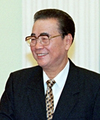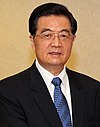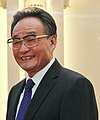
The 16th National Congress of the Chinese Communist Party was held in Beijing between November 8 and 14, 2002. It was preceded by the 15th National Congress and was succeeded by the 17th National Congress. 2,114 delegates and 40 specially invited delegates represented the party's estimated 66 million members.
The 16th Central Committee of the Chinese Communist Party was in session from 2002 to 2007. It held seven plenary sessions. It was set in motion by the 16th National Congress of the Chinese Communist Party. The 15th Central Committee preceded it. It was followed by the 17th Central Committee of the Chinese Communist Party.
The 15th Central Committee of the Chinese Communist Party was in session from 1997 to 2002. The 14th Central Committee preceded it. It was followed by the 16th Central Committee of the Chinese Communist Party. This was the first Central Committee that current CCP general secretary Xi Jinping was elected to, as an alternative member.
The 14th Central Committee of the Chinese Communist Party was in session from 1992 to 1997. It held seven plenary sessions. It was preceded by the 13th Central Committee. It was elected by the 14th National Congress of the Chinese Communist Party and in turn elected the 14th Politburo of the Chinese Communist Party.
The 13th Central Committee of the Chinese Communist Party was in session from 1987 to 1992. It held seven plenary sessions. It was preceded by the 12th Central Committee and succeeded by the 14th Central Committee. It elected the 13th Politburo of the Chinese Communist Party in 1987.
The 11th Central Committee of the Chinese Communist Party was in a five-year session from 1977 to 1982. The 10th Central Committee of the Chinese Communist Party preceded it. It held seven plenary sessions in the five-year period. It was formally succeeded by the 12th Central Committee of the Chinese Communist Party.
The 10th Central Committee of the Chinese Communist Party was in session from 1973 to 1977. It was preceded by the 9th Central Committee of the Chinese Communist Party. It held three plenary sessions in the four-year period. It was formally succeeded by the 11th Central Committee of the Chinese Communist Party.
The 9th Central Committee of the Chinese Communist Party was in session from 1969 to 1973. It was preceded by the 8th Central Committee of the Chinese Communist Party. It was the second central committee in session during the Chinese Cultural Revolution. Even amidst partial cultural disintegration, it was succeeded by the 10th Central Committee of the Chinese Communist Party. It held two plenary sessions in the 4-year period.
The 8th Central Committee of the Chinese Communist Party was in session from 1956 to 1969. It was preceded by the 7th Central Committee of the Chinese Communist Party. It held 12 plenary sessions in this period of 13 years. It was the longest serving central committee ever held by the Communist Party.
The 7th Central Committee of the Chinese Communist Party was in session from 1945 to 1956. It was a product of the convening of the 7th National Congress of the Chinese Communist Party. It held six plenary sessions in this 11-year period. It began in June 1945, before the end of the Second Sino-Japanese War, and the resumption of the Chinese Civil War. This committee would be succeeded by the 8th Central Committee.
The Politics of Anhui Province in the People's Republic of China is structured in a dual party-government system like all other governing institutions in mainland China.
The Politics of Hunan Province in the People's Republic of China is structured in a dual party-government system like all other governing institutions in mainland China.
The Politics of Ningxia Autonomous Region in the People's Republic of China is structured in a dual party-government system like all other governing institutions in mainland China.
The politics of Shandong Province in the People's Republic of China is structured in a dual party-government system like all other governing institutions in mainland China.
The Politics of Fujian Province in the People's Republic of China is structured in a dual party-government system like all other governing institutions in mainland China.
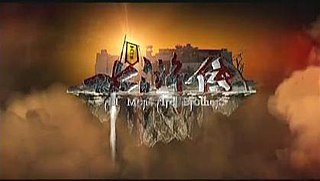
All Men Are Brothers is a 2011 Chinese television series adapted from Shi Nai'an's 14th century novel Water Margin, one of the Four Great Classical Novels of Chinese literature. The series is directed by Kuk Kwok-leung and features cast members from mainland China, Taiwan and Hong Kong. The series was first broadcast on 8TV in March 2011 in Malaysia.
The 18th Politburo of the Chinese Communist Party (CCP), formally the Political Bureau of the 18th Central Committee of the Communist Party of China, was elected at the 1st Plenary Session of the 18th Central Committee of the CCP on 15 November 2012 in the aftermath of the 18th National Congress. This electoral term was preceded by the 17th Politburo and succeeded by the 19th. Of the 25 members, seven served in the 18th Politburo Standing Committee.
The Lao She Literary Award is named after the Chinese novelist Lao She, a writer and activist of 20th-century Chinese literature. The award is awarded to a Beijing writer every two to three years, recognising literary excellence in novels, novellas, drama, film, television, and radio. It is sponsored by the Lao She Literature Fund which was founded in 1988. The prize was established in 1999, and was first awarded in 2000. It is Beijing's highest prize for literature and the arts, and is one of the four major literary awards in China, alongside the Mao Dun Prize for Literature, Lu Xun Literary Prize, and the Cao Yu Prize for Playwriting (曹禺戏剧文学奖).
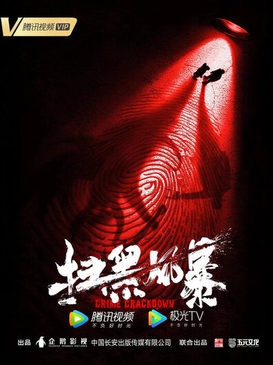
Crime Crackdown is a 2021 Chinese crime drama series written by Du Liang and directed by Wu Bai, and starring Sun Honglei, Lay Zhang and Liu Yijun. Based on several real-life cases that shook China in the 2010s, the series picks up a national anti-gang supervising group and local police officers as they take on gangs and the corrupt officials that offer these illegal groups a "protective umbrella". The series premiered on Dragon Television and Beijing TV on 9 August 2021.
This page is based on this
Wikipedia article Text is available under the
CC BY-SA 4.0 license; additional terms may apply.
Images, videos and audio are available under their respective licenses.


